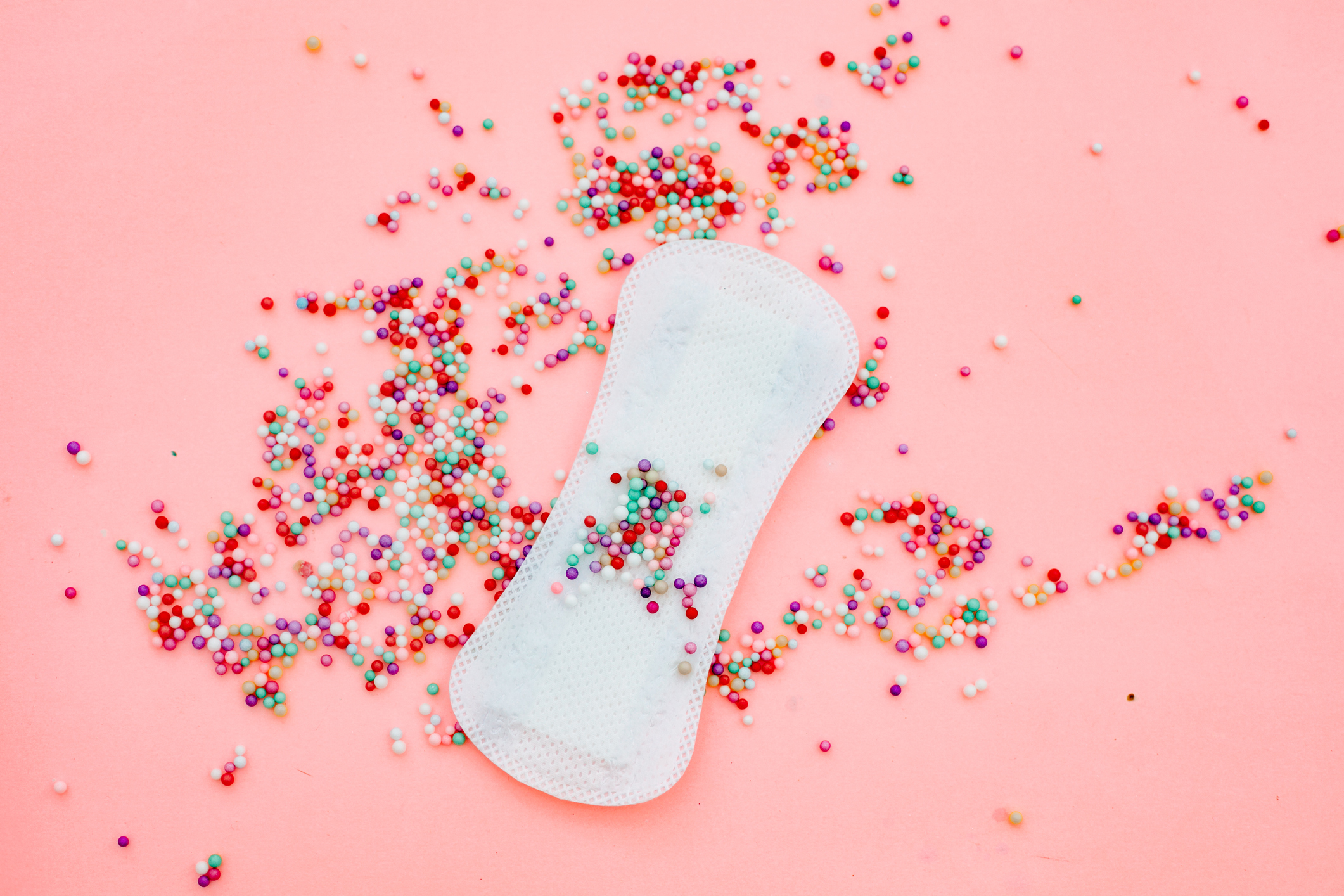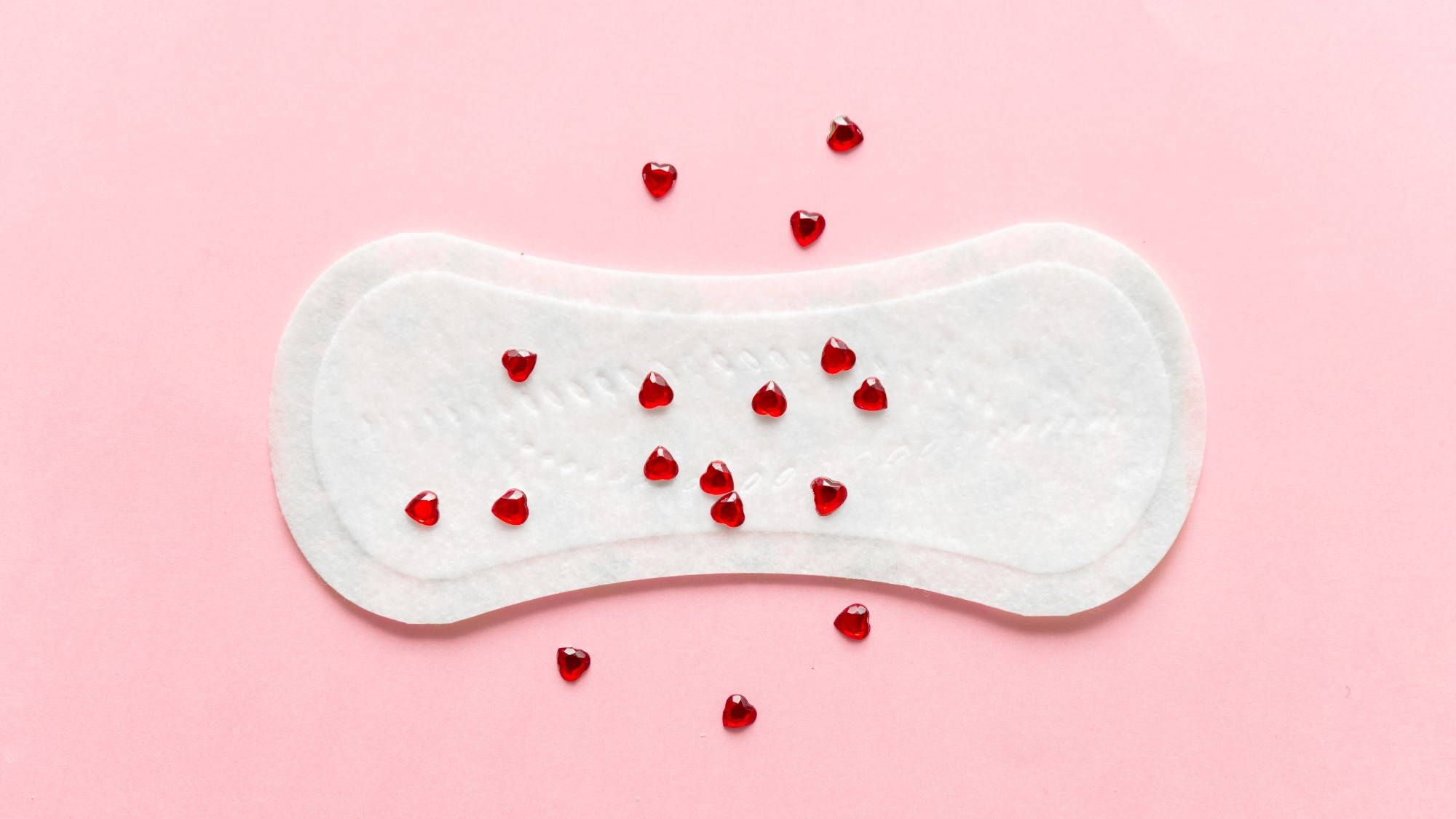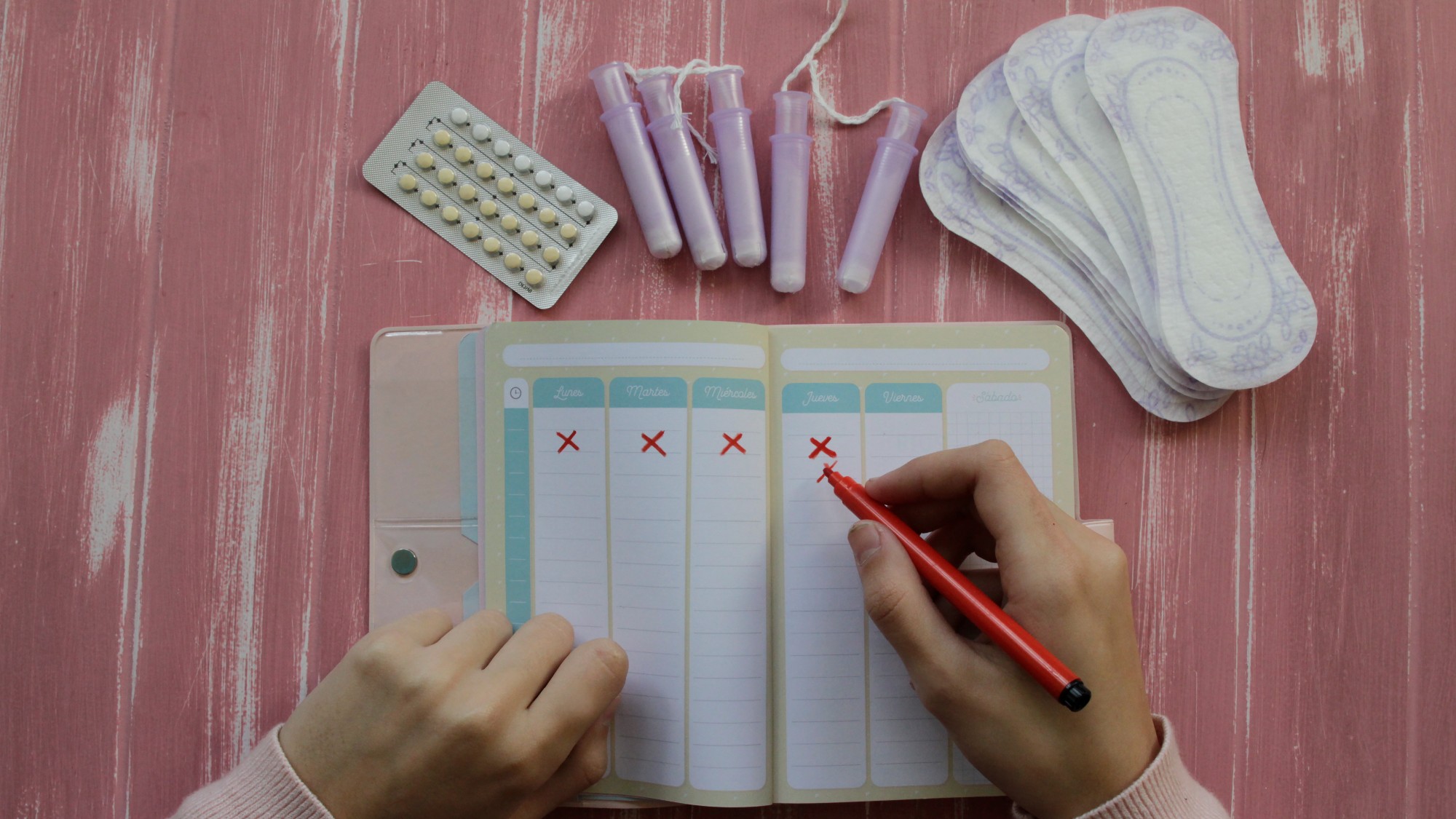Research has finally proven the link between the vaccine and your period
1 in 5 women are currently suffering from COVID-related menstrual problems.

1 in 5 women are currently suffering from COVID-related menstrual problems.
If you've missed periods or noticed irregular bleeding throughout the pandemic, you certainly aren't alone. In exciting news this week, the first conclusive study has finally established the link between the pandemic and missed periods.
Published in the Obstetrics & Gynecology journal, data from fertility tracking app Natural Cycles analysed 4,000 periods to determine if - in fact - the vaccines did have an impact.
The findings were clear - those vaccinated did see changes to their cycles including heavier periods, missed periods and irregular bleeding.
However, do note, the paper also concluded that the changes aren't lasting long term. That is, any changes you do notice are only temporary and shouldn't repeat in your upcoming cycles (if they do, do see your doctor).
This comes after 30,000 individuals reported that they'd noticed menstrual cycle changes after having a Covid-19 vaccine. Some experienced heavier periods, some missed periods, and others saw unexpected bleeding after their first, second, and booster vaccines.
Bottom line: irregular periods are actually more common than you'd think, and can happen for a number of reasons. According to Dr Sarah Brewer, Healthspan Medical Director, your period would be classified as 'irregular' if the length of time between each period, plus the duration of bleeding and amount you bleed, vary from bleed to bleed. "Irregular periods are most common in the early teens and again as the menopause approaches," she shares. "Plus, many women do find their periods are occasionally irregular. Failure to ovulate sometimes occurs in women with otherwise normal menstrual cycles."
Celebrity news, beauty, fashion advice, and fascinating features, delivered straight to your inbox!
But if you're wondering why now, we've roped in two doctors to answer all your questions. Keep reading for advice on what to do if your monthly bleeds are all over the place, plus all the reasons for a missed period, too.

7 possible reasons behind a missed period
The most obvious reason you've missed a period is pregnancy, but once you've ruled that out, what else could be the cause? According to Dr Brewer, periods may become irregular as a result of:
1. Physical stress (eg excessive exercise; stress of lockdown) 2. Emotional stress (eg stress of COVID-19 pandemic, grief, depression) 3. Significant loss of weight (eg anorexia nervosa) 4. An over-active or under-active thyroid gland 5. Polycystic ovarian syndrome (PCOS) 6. Gynaecological problems, such as an ovarian tumour 7. Approaching menopause
She also shares that an irregular, heavy period that was also late could be due to a miscarriage. "If you think this could be the case, always seek medical advice," she stresses.
Why has the pandemic had an impact on our periods?
According to Narendra Pisal, consultant gynaecologist at London Gynaecology, they've been seeing an increasing number of period-related issues in their clinics.
But why? Short answer: increased stress, anxiety and workload, and less easy access to doctors and GP clinics. "There are several factors responsible. These include anxiety and stress caused by the pandemic and lockdown, increase in the workload for women due to home-schooling and working from home, not forgetting the affect of COVID infection on general and reproductive health," he shares.

What should I do if I've missed a period?
First thing's first – take a pregnancy test if there's any possibility at all that you could be pregnant.
From there, it's important to keep a record of when bleeding occurs, Dr Brewer advises. "If your vaginal blood loss is irregular, this may help to tell true irregular periods from regular periods, and establish what is irregular non-menstrual bleeding in-between," she explains.
Do note: The doctor explains that irregular bleeding that is non-cyclical (aka, not due to normal menstruation) is known as metrorrhagia. "This will always needs investigating to find out the cause, so do book an appointment with your GP," she advises.
Tips for dealing with a missed period
1. Get to know your ‘normal’ cycle
Keeping a track of your cycle, according to Pisal. "There are loads of smartphone apps that will help," he shares. We like Clue, Flo and Glow.
Do note that a 'normal' cycle can have anything from 21 to 42 days between bleeds. "That is entirely regular," Pisal reassures.
2. Make sure you're living a balanced lifestyle
It may sounds obvious, but many menstrual problems could be prevented by better self-care. "Make sure you're getting balanced nutrition, regular exercise and adequate sleep, and try and maintain a healthy body weight," Pisal recommends. "They're all important factors in maintaining a regular menstrual cycle," he continues.
And remember, a little bit of self-love will go a long way.
3. Try and notice a pattern
So, your period is slightly delayed or slightly early. Don't panic immediately, shares Pisal. "There's no cause for concern unless it becomes a persistent pattern," he shares. "Do keep an eye on things – usually the cycle will return back to normal," he explains.
4. Watch out for red flags
Again, if your periods do become persistently irregular, it's time to book a GP appointment. Other red flag symptoms include:
- Prolonged bleeding
- Heavier flow
- Bleeding between periods
- Bleeding after sex.
5. Practice self-care
Top tip from Pisal: don’t ignore what can feel like boring self-care.
"This includes having your cervical screening when invited, having your contraception reviewed when appropriate, and looking after yourself during the premenstrual and menstrual period," he explains.
6. Maintain a healthy hormone balance
Sounds scary, isn't really. Maintaining your hormones essentially means eating well and looking after yourself. For a healthy hormone balance, doctor Brewer advises you aim for:
- Eat a healthy, low-fat, preferably organic diet
- Eat at least five portions of fruit and veg a day
- Eat essential fatty acids, like nuts, seeds, pulses and fish
- Be mindful of your intake of sugar and salt
- Avoid convenience, pre-processed foods and additives - eat home-made meals as much as possible
- Be mindful of your alcohol consumption
- Be mindful of your caffeine consumption - aim for no more than three caffeinated drinks a day
- Never skip a meal, especially breakfast
- Drink plenty of fluids, especially water.
Final note: don’t be afraid or shy to talk about your concerns, shares Pisal. "Whether that's on social media, with your line manager, or with your friends and family, breaking the taboo around menstruation is important. It's time we normalise talking about female health," he concludes.

Ally is Marie Claire UK's Senior Health and Sustainability Editor, a well-regarded wellness expert, nine-time marathoner, and Boston Qualifying runner.
Utilising her impressive skillset and exceptional quality of writing, she pens investigative, review and first-person pieces that consistently demonstrate flair and originality.
As well as writing, Ally manages a team of freelancers, oversees all commissioning and strategy for her pillars, and spearheads the brand's annual Women in Sport covers, interviewing and shooting the likes of Mary Earps, Millie Bright, and Ilona Maher. Shortlisted for three BSMEs and winning one in 2022, Ally lives and breathes her verticals: her eye for a story and connections within the wellness sphere are unrivalled. Follow Ally on Instagram for more.
